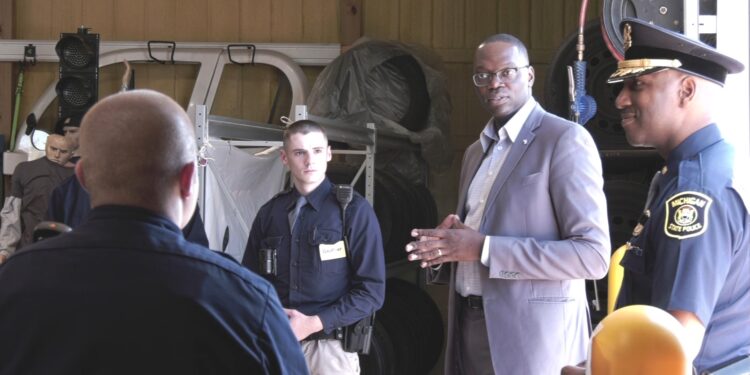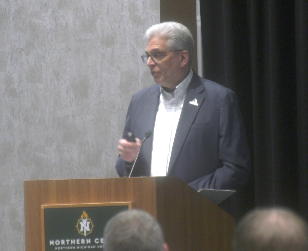LANSING, Mich. (WZMQ) – Lieutenant Governor Garlin Gilchrist met with trainees at the Michigan State Police (MSP) Training Academy in Dimondale today. The recruits conducted training exercises and discussed the training process’s ins and outs.
Every Michigan State Police Trooper completes 20 to 22 weeks of recruit training at the academy in Dimondale. In classes of about 50 recruits, the trainees undergo daily exercises preparing them to join the state police force.
Director of the Michigan State Police, Colonel James Grady, welcomed Gilchrist to the academy to observe classes and training exercises and gain insight into how the MSP’s newest recruits are doing.
Durring the visit, Gilchrist also discussed new equipment with officers. He said he looks forward to his visits at posts across the state, and that talking with trainees strengthens his confidence in Michigan’s state police force.
“This is important to me and so I like to be able to check in with these folks who are serving every community all across michigan and understand what they want to know, what could be better, why they became troopers… Because we need to have the best and the brightest in the michigan state police academy.” Gilchrist said. “I want to make sure that the troopers have everything they need. Governor Whitmer and I are proud of the continued and consistent, and actually increased investment.”
Col. Grady said the most important part of the training program is the diversity of training staff in the academy. With over a thousand offices from Detroit to Marquette, he said their staff helps prepare recruits for any situation they could face, no matter what post they end up at.
“We’re always researching, trying to improve and progress our training to make sure it’s modern and meets today’s needs,” Grady said. “It’s great to have a diverse training staff and we have that here in the MSP so that regardless of where you work, we have people who can relate and be able to provide that information on some of those challenges or differences. There’s a difference between patrolling the Detroit metropolitan area compared to the southwest, the central, or the Upper Peninsula.”
Over the past six years, the Whitmer Gilchrist administration has invested over a billion dollars in public safety programs. Gilchrist said they plan to continue that trend to support trainees and veteran officers while increasing public safety.









